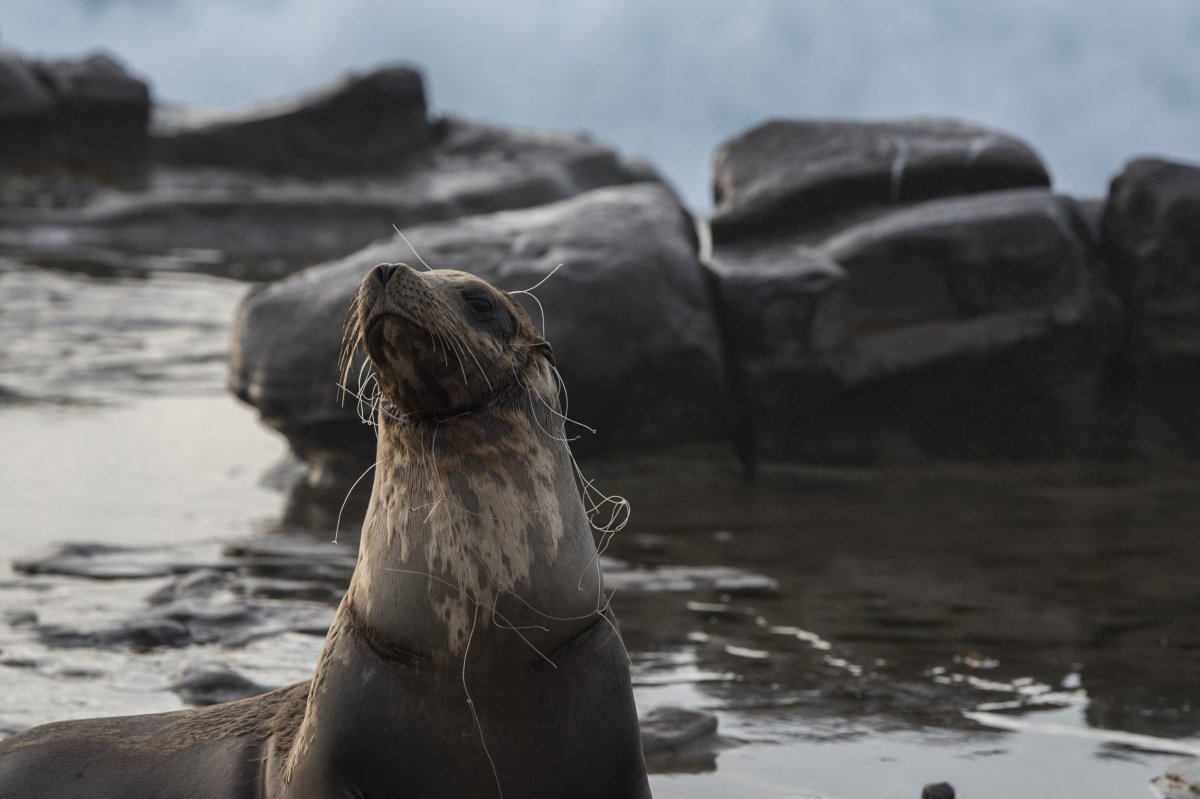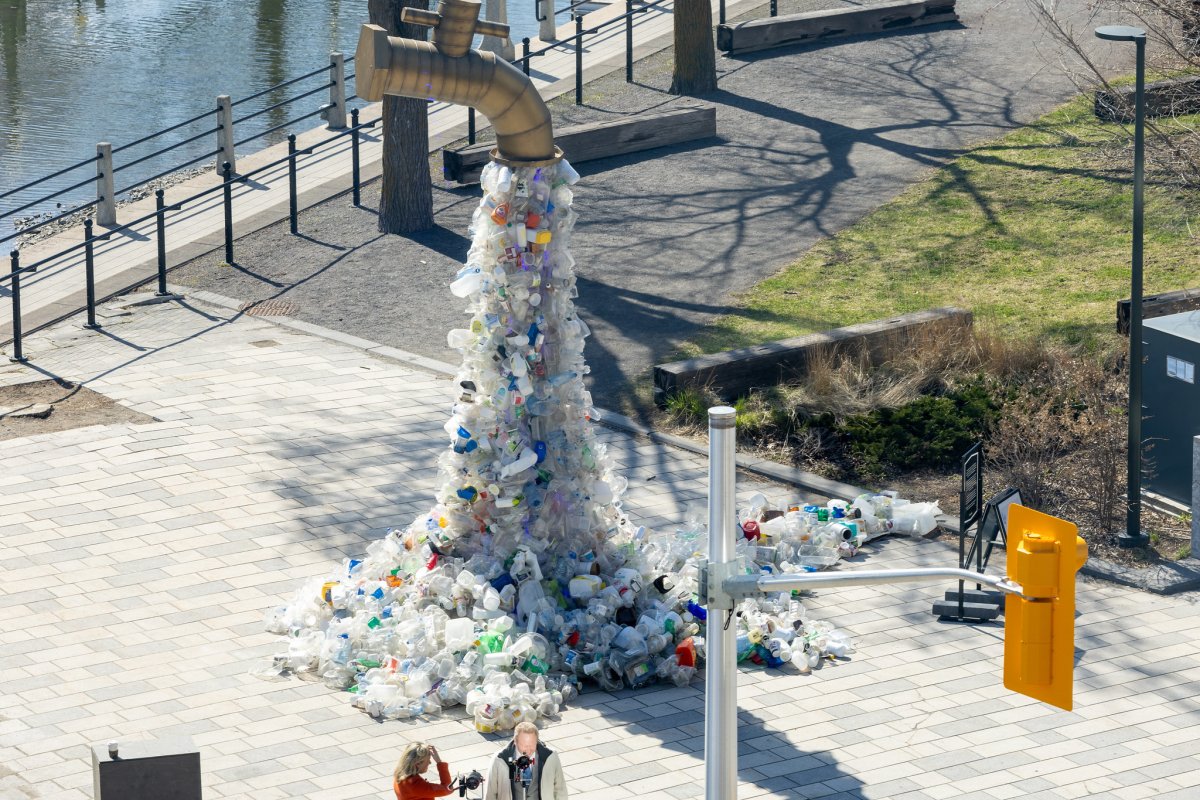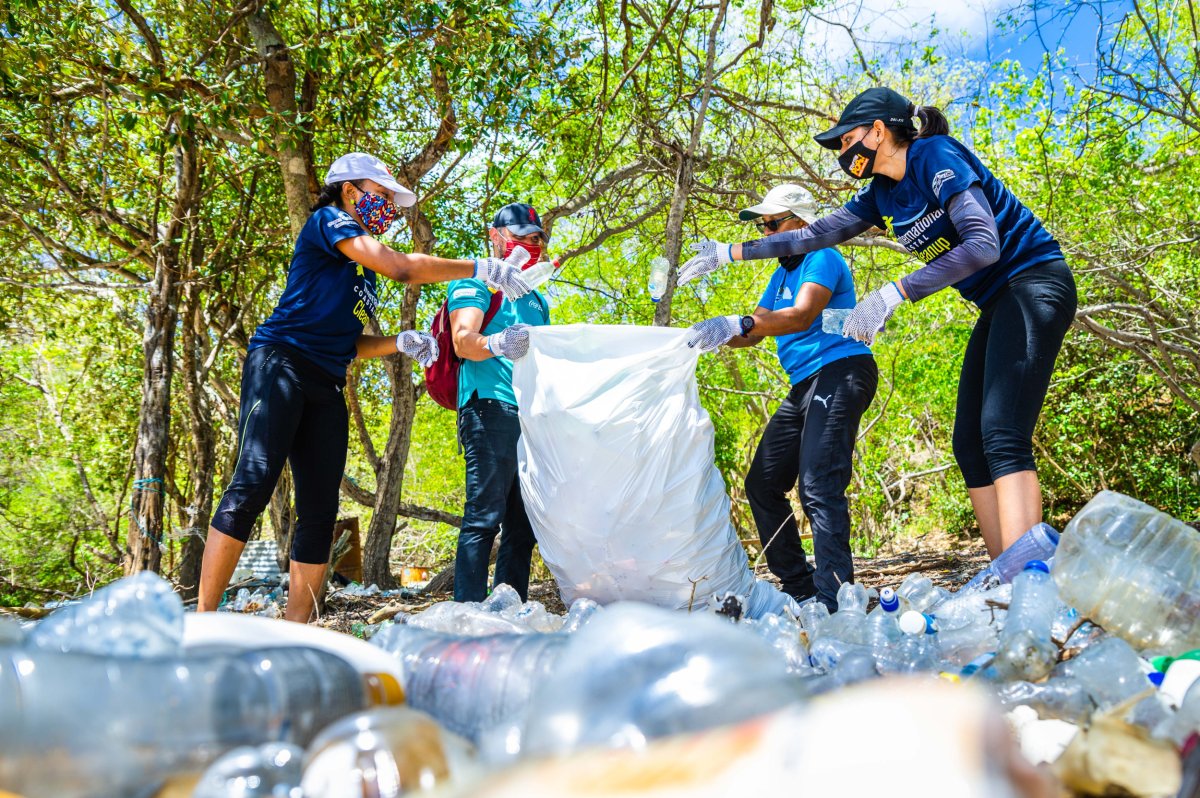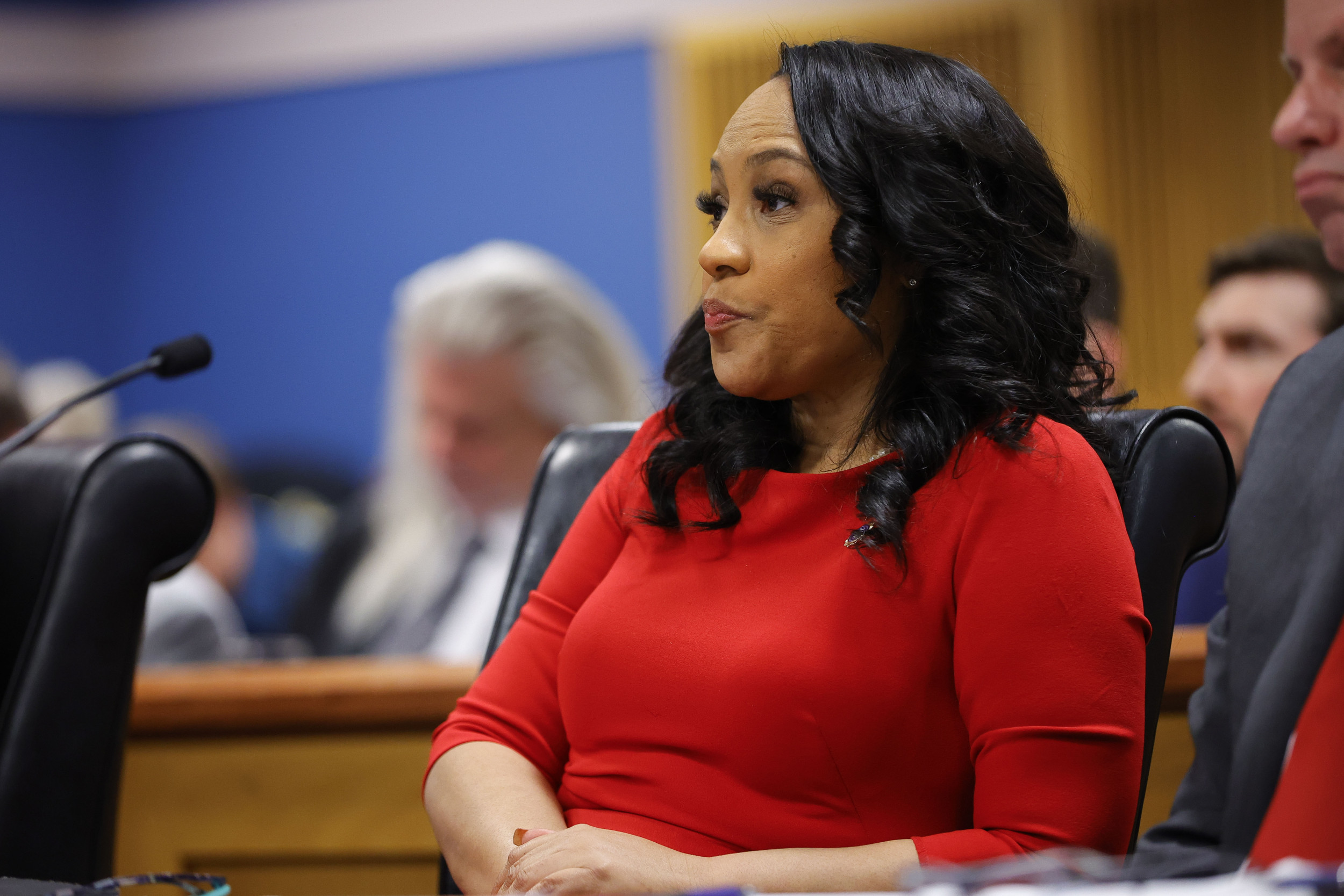Negotiators working on a potentially historic international agreement to limit plastic pollution wrapped up talks this week in Ottawa, Canada, leaving some observers with guarded hope about the chances for a global treaty on plastic waste.
"The global plastics treaty truly is a once-in-a-lifetime opportunity to get this right and to solve one of the greatest and ever-increasing challenges of our time," Nick Mallos, vice president of conservation, ocean plastics, at the nonprofit environmental organization Ocean Conservancy, told Newsweek.
In Ottawa, representatives for countries in the United Nations Intergovernmental Negotiating Committee identified key issues to work on before final treaty talks begin in November in Busan, South Korea. "We're cautiously optimistic that this process will remain on track," said Mallos, who has closely monitored the talks over the past two years.
The scale of plastic waste has reached staggering levels. A 2020 study estimated that the total amount of plastic now outweighs all animal life. The U.N. Environment Programme estimated in a 2021 report that of the roughly 430 million tons of plastic produced annually, about a third is made up of single-use products such as wrappers, packaging, bottles and bags. Much of that waste makes its way into waterways and, ultimately, the oceans.

Marine ecologists say plastic pollution in oceans has reached a crisis point, with an estimated 14 million tons of plastic entering the ocean every year, according to the International Union for the Conservation of Nature. Plastic makes up 80 percent of all ocean debris, the IUCN reports, and animals are frequently injured or killed when they eat or are entangled by plastic waste.
Douglas McCauley is a professor of ocean science at the University of California, Santa Barbara. In an interview with Newsweek, McCauley described doing research on the remote Midway atoll in the Pacific, far from any sizable human settlement.
"But the first thing I see when I get off the plane is plastic pollution on beaches and on the reefs and inside the wildlife itself," he said. McCauley studied the albatross colonies that nest on the island and described his shock upon finding that even in that seemingly pristine ecosystem, the birds were affected by plastic.
"They're bringing back lighters and toothbrushes and all kinds of other plastic pollution and feeding that to chicks," he said. "And some of the chicks simply don't survive."
Ocean Conservancy's Mallos said plastic waste also includes "ghost gear," the plastic nets, traps and monofilament lines that escape from fishing vessels but continue killing marine life as they drift around the ocean.
Mallos said the main components that could make for a strong final treaty were still in play at the conclusion of the Ottawa talks, including ways to address ghost gear and measures to restrict microplastics that can make their way into the food web.
However, he said, negotiators have much to do before the final talks, especially regarding the major question at the heart of the treaty—a limit on the production of plastic.
"We must reduce the amount of plastics that we make and use in the first place," Mallos said. "We're simply pumping too much material into a system that can no longer handle it."

Recycled Plastic Arguments
Work on the treaty dates to March 2022, when the U.N. Environment Assembly adopted a landmark resolution to develop an international legally binding instrument on plastic pollution.
Throughout the process, major plastics makers and the trade groups that represent them have issued statements supporting the treaty's top-line goals to prevent plastic waste.
"Our vision is to prevent plastics from entering our environment by achieving universal access to waste collection and reusing instead of discarding plastics," Dow Chairman and CEO Jim Fitterling said in a statement during the lead-up to the UNEA resolution.
However, the industry disagrees with any limit on plastic production.
"'Stop producing it' is not good public policy," Plastics Industry Association President and CEO Matt Seaholm wrote earlier this month in Waste 360, a publication serving the solid waste and recycling industries. "We need plastic—plain and simple. It is an essential part of society."
The plastics and petrochemical industries had a significant presence at the talks in Ottawa, even outnumbering official delegates, according to one environmental group's analysis. The industry hosted side events emphasizing the critical role of plastics in everything from manufacturing to medicine.
The solution to plastic pollution, Seaholm argued, is not less plastic but more recycling.
"The plastics industry is committed to recycling more, but we need partners who commit to recycling as a vital link in the global sustainability chain," he wrote.
But while industry has long promoted recycling, it has proved costly and, in some cases, technologically and logistically challenging. A 2022 study found that less than 10 percent of plastic waste is recycled.
"Recycling has been really a farce," McCauley said. He and his colleagues at UC Santa Barbara and UC Berkeley developed a model that allows people involved in the treaty negotiations to see how different policy approaches would affect the flow of plastic pollution.

More financial support for less-developed countries coupled with a moderate limit on plastic production could bring waste down in the coming decades, the model shows, but recycling alone will not.
"Recycling is not a silver bullet," McCauley said; however, there are ways to make it work better. If the treaty required a minimum amount of recycled content to be used in new plastic products, McCauley said, the model shows an improvement in plastic waste.
"Then you can take a bite out of plastic pollution," he said.
Plastic's Climate Connection
In addition to pouring waste into oceans, plastics also pump huge amounts of greenhouse gases into the atmosphere because most plastics are made from petrochemicals.
Researchers at the Lawrence Berkeley National Laboratory analyzed climate pollution from the production of the nine major types of plastic polymers and found they accounted for a little more than 5 percent of total global greenhouse gas emissions, more than the global aviation sector.
Further, the researchers said, the plastics industry's current growth trajectory is "exponential," with plastic production on course to double or triple by 2050, which could bring a doubling of emissions as well.
"That has huge implications for the global climate crisis," Ocean Conservancy's Mallos said. "There is no way to address one without addressing the other."

Mallos said the nations participating in the talks have largely broken into three camps. Coastal and island nations severely impacted by plastic pollution have joined with some European nations to form a high-ambition coalition pressing for strong action, while a second group with closer ties to the plastics and petrochemical industries is resisting limits on plastic production. Then there is a third group of nations that includes the U.S.
"The United States, I think, continues to play a pivotal middle-of-the-road role," he said.
UC Santa Barbara's McCauley said he finds it frustrating that when surveys show most Americans support a limit on plastic waste, the U.S. has not taken a leadership role on the issue.
"The United States has found our leadership voice in climate negotiations; we haven't yet found it in the plastic pollution treaty," he said.
McCauley has a collection of plastic from his time on the atoll at Midway: bottle caps and pieces of debris picked out of albatross nests. On a recent visit to Washington, he said, he took some of those bits of plastic with him as gifts for the U.S. negotiators as a reminder of what's at stake.
"Really just to, you know, help inspire some ambition," he said. "The United States needs to find its voice on the treaty."
Uncommon Knowledge
Newsweek is committed to challenging conventional wisdom and finding connections in the search for common ground.
Newsweek is committed to challenging conventional wisdom and finding connections in the search for common ground.
About the writer
To read how Newsweek uses AI as a newsroom tool, Click here.





